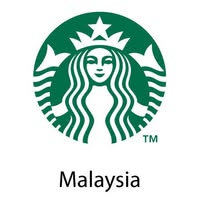
by Dr Rahim Said
It is a sad day when a barista, tired and frazzled after pulling long shifts serving caffeine-deprived travellers, finds her entire career derailed over one word — bodoh.
Whispered under her breath, probably as a private sigh of frustration, it somehow ended up costing her livelihood.
The poor woman likely did not imagine that a muttered remark, picked up by a smartphone camera and magnified by the megaphone of social media, could lead to dismissal.
But this is the world we live in: one where customer service has become theatre, where every encounter is a potential viral moment, and where even your quietest words can be weaponized against you.
Let’s be clear: muttering “stupid” at a paying customer, especially a foreign tourist already struggling with language barriers, was wrong. It was unkind, unprofessional, and, for a company built on branding itself as a warm “third place,” simply unacceptable.
Starbucks Malaysia was right to act decisively. Their customers deserve respect — not ridicule — even if expressed in a mutter.
But justice in corporate settings often comes at a human cost. This barista is not a villain; she is a casualty of a time when empathy is scarce and cameras are everywhere.
She represents thousands of workers in low-wage service jobs who are expected to smile endlessly, no matter how rude or demanding the customer, while hiding their fatigue, their stress, and their humanity.
Starbucks’ decision may be applauded for upholding standards, but it also reminds us that the burden of perfection falls hardest on the least powerful.
Executives who run billion-ringgit losses and shut down entire outlets are not marched out with pink slips for failing the company.
Yet a barista, one slip of the tongue, and she’s gone.
Justice, yes — but justice without compassion is cruelty. Perhaps the lesson here is twofold: to remind service workers that professionalism is non-negotiable, but also to remind the rest of us — customers, tourists, corporations — that workers are human beings, not machines programmed to smile without fault.
The word bodoh should not have been spoken. But neither should it be the full stop on this barista’s life story.
(The views expressed here are those of the writer)
WE